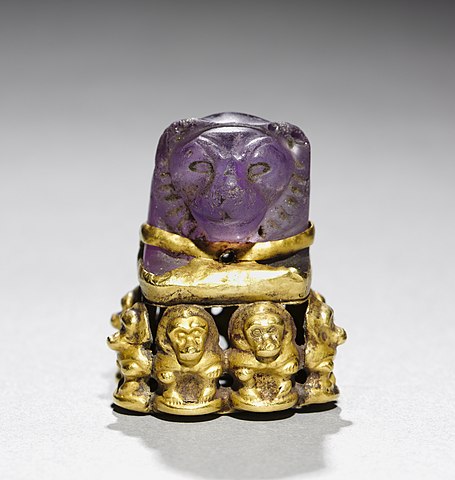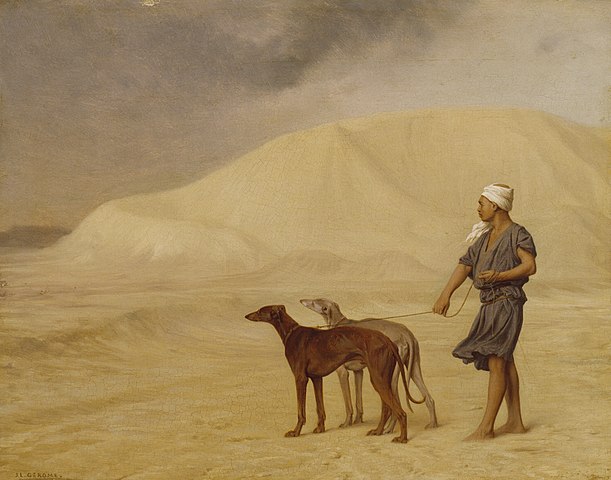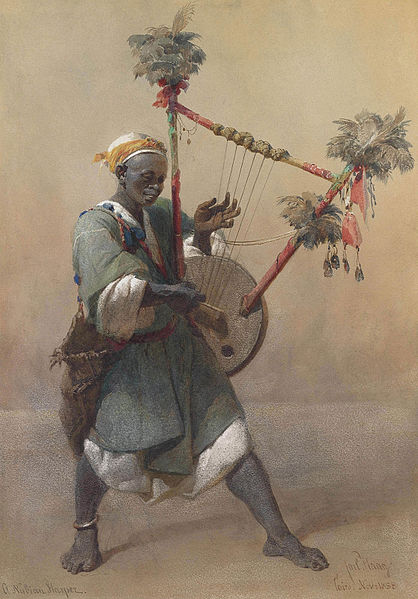
Thammasat University students who are interested in social and cultural anthropology, ethnography, folklore, literature, and related subjects may find a newly available book useful.
Nubian Proverbs is an Open Access book, available for free download at this link:
https://library.oapen.org/handle/20.500.12657/54349
The author is Maher Habbob, a Nubian scholar working in Egypt on Nubian heritage, folklore, and language.
The TU Library collection includes several books about different aspects of Nubian culture and civilization.
Nubians are an ethnolinguistic group of people who are indigenous to the region which is now northern Sudan and southern Egypt. They originate from the early inhabitants of the central Nile valley, believed to be one of the earliest cradles of civilization. They speak Nubian languages, part of the Northern Eastern Sudanic languages.
In the 1995/96 academic year, twenty-five Egyptian Nubian students from the Faculty of Social Work in Aswan, a city in the south of Egypt, completed a Nubian ethnological survey. They documented Egyptian Nubian culture and heritage, including proverbs, tales, lullabies, marriage customs, and mourning songs, as well as models of Nubian clothes, jewelry, and houses.

As one earlier study noted,
For thousands of years and even today, Nubia’s Nile Valley provided the only dependable way across the barrier of the great desert of Africa to the Mediterranean Sea. Exotic animals, skins, ostrich eggs and feathers, ivory, ebony, and most important, gold were brought from Nubia and other parts of Africa into Egypt and the Near East. Nubians exported some of these goods themselves. In other cases, they acted as commercial middlemen for Egyptians and charged taxes for these items, which they prized so highly. Because Nubia was such an important and well-traveled trade route, it was known throughout the ancient world, particularly to the Egyptians, Greeks and Romans, and peoples of the Near East. It served as a cultural meeting place for travelers from the interior of Africa as well as from the Mediterranean world. The cultures of Nubia reflect a blend of the traditions of all of these people.
For thousands of years, many peoples have settled along the Nile River from the Mediterranean coast to the interior of Africa. As one moves from the north to the south, one would observe that the physical features of these Nile dwellers change gradually. The variations are barely noticeable from one village to the next. But, over longer distances, one can see differences in skin color, facial features, and height and hear several different languages. This is as true today as it was thousands of years ago. The peoples of Nubia are an indigenous African population. They have occupied the middle portion of the Nile Valley since at least 6000 B.C. and likely for much longer. The Greeks and Romans called all the territory south of Egypt by the Greek name Ethiopia, which meant “Land of the Burnt Faces.” This described its people, who had dark brown or black skin. Even the name Sudan is an Arabic translation of the Greek name meaning “(Land of the) Blacks.” According to the latest studies, modern-day Nubians are most likely the direct descendants of the ancient Nubians. While both Egyptians and Nubians are indigenous African peoples, the ancient Egyptians represented themselves in their art differently from their southern neighbors. Egyptian artists used a red-brown paint for the skin color of Egyptian men, yellow for Egyptian women, and a dark brown or black for all Nubians. A painting from the tomb chamber of an Egyptian queen shows her with black skin color, indicating that she was Nubian or of Nubian descent… Nubian civilization is among the oldest in the world. Most of what we know about the history of ancient Nubia comes from archaeology. It is apparent that the histories of Nubia and Egypt have always been intertwined. Both countries shared a past of conquering and being conquered by each other. When one country became weak, the other would dominate. Throughout history, however, the Nubian cultures retained their own distinctive characteristics, as evidenced in their symbols of kingship, art, costume, jewelry, hairstyles, pottery, dwellings, styles of burials, and gods, for example.

Here are some examples of proverbs from the collection, with explanations by the author:
He who sits on the ground has the fastest running horse.
- [Used to ridicule someone of many words and little action.]
What does scorpion give birth to? Small scorpions.
- [Bad temper is transmitted from one generation to another.]
Even a billy goat has a beard.
- [What counts is personality, not appearance.]
Even an ant has a mind according to its size.
- [Advice not to underestimate anyone, even they may think differently.]
Thorns will not befall those who look at where they place their feet.
- [Be careful before doing anything.]
If the wind is not strong, the boat will not sail.
- [If you want to do something, you must prepare well and wait for the appropriate conditions.]
People who act like a horse and a snake.
- [Said about those who always disagree with each other in any discussion or situation.]
Even a needle when it falls, it sounds like iron.
- [Advice not to underestimate the details.]
He is like scissors, you have move him with your fingers.
- [Said about someone who does nothing without being moved by others.]
He who does not control his tongue does not control himself.
- [Said to encourage keeping secrets.]
When the hyena gets old, it becomes a mockery of dogs.
- [Said when someone of former power or influence loses their position.]
An onion doesn’t have two smells.
- [Said against double standards.]
The ax does not fix itself.
- [Said about someone who benefits or advises others, but not himself.]
Swim freely in a river without crocodiles.
- [Said to advise a person to seize the opportunity in the
absence of those who may deter him, or as a mockery
of seizing opportunities in an unethical manner.]
The water does not drip between his fingers.
- [Said about an extremely miserly person.]
Whoever digs a hole falls in it.
- [Said when someone intended to harm others, but only harms themself.]
If you dig a hole, you only get dirt.
- [Said to people if they quarrel with the intention to
reconcile them and persuade them to start a new page.]
You cannot count on other people’s children.
- [Advice to rely on your own family.]
He who eats with the hand of others will not be satisfied.
- [Said to encourage people to rely on themselves.]
Not everyone wearing a scarf is a woman.
- [Appearances are deceiving.]
Who rides a donkey does not care about who walks on their feet.
- [Said about the rich not caring about the poor.]

(All images courtesy of Wikimedia Commons)
